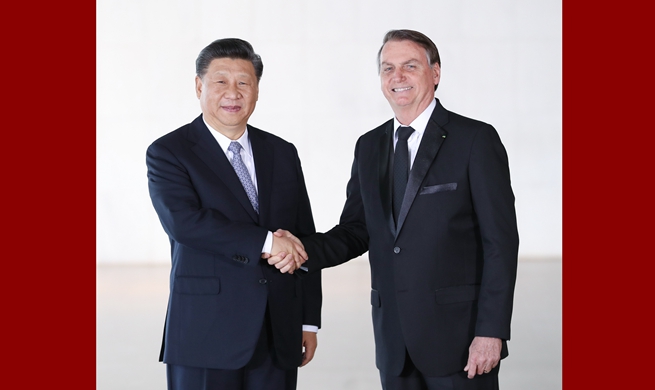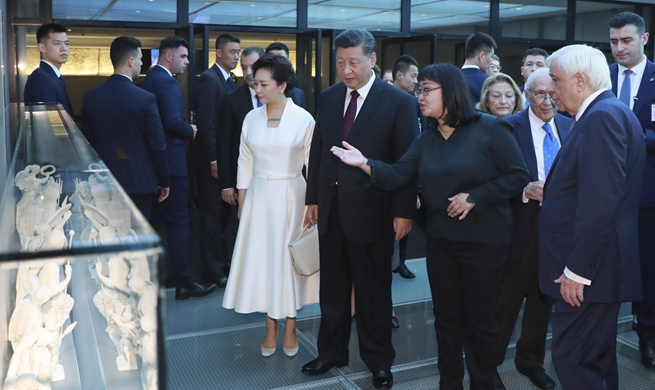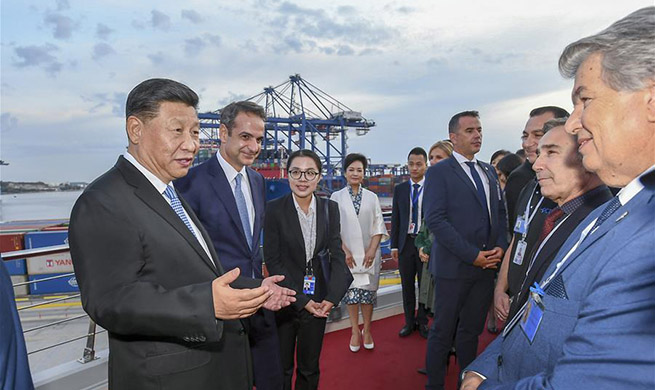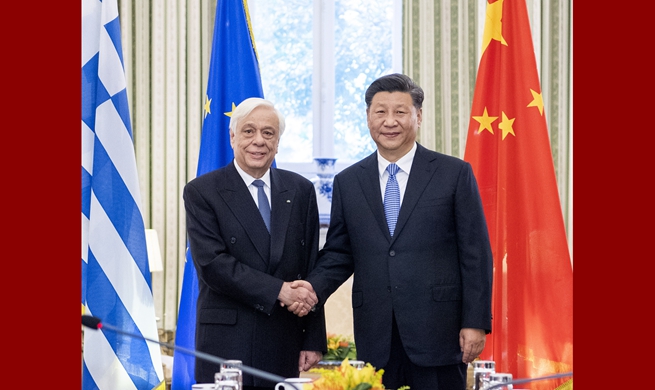NEW YORK, Nov. 12 (Xinhua) -- China's efforts in fighting poverty over the past decades has been "a huge success" amid the sustained growth in the country driven by reform and opening-up, a U.S. development economist and Nobel laureate has said.
"China has experimented a lot to find ways to improve economic development and to reduce poverty, and in that process, it's been very successful," Michael Kremer, a Harvard professor whose research examines education and health in developing countries, immigration and globalization, told Xinhua in a recent interview.
A decentralized approach "combined with appropriate incentives has been a powerful ingredient behind China's success in fighting poverty," said Kremer, who received the 2019 Nobel Prize in Economics, together with MIT professors Esther Duflo and Abhijit Banerjee for their "experimental approach to alleviating global poverty."
Another element behind China's success in poverty relief "is the process of experimentation," in which new policies are often introduced in a particular region before being spread more broadly, according to him.
China has made historic achievements in fighting poverty, making the country a major contributor to the world's poverty reduction endeavors.
Since the founding of the People's Republic of China in 1949, it has lifted over 800 million people out of poverty, which represent over 70 percent of global poverty reduction.
A whole set of reforms and openness are important drivers for China's robust growth for decades, the development economist said.
"One of the things that's particularly amazing about China is not only the extremely high growth rates, but those have been sustained for four decades ... So that type of consistent growth is very rare," said Kremer, highlighting the country's principle of trying to get economic growth through openness and its overall economic reform.
The Nobel laureate noted that the country's attention to a social safety net is "very valuable."
As China has grown, the country is trying to address the problem of individuals who are poor for a variety of reasons and tries to provide a social safety net, whether that's through education system, healthcare system or pensions, said Kremer.
The development economist said it is a long and arduous task to ease poverty and improve people's well-being.
"In China's case, there's the added dimension of the huge migration that leaves so many elderly people separated from their families," Kremer said.
"So devising ways not just to address the economic needs of the elderly, but also the broader health needs and the social needs, is going to be a very important challenge for China going forward," he said, noting the country's approach of trying to be open and trying to experiment is conducive to addressing the challenges.
China still had 16.6 million rural people living below the national poverty line at the end of 2018, with more than half of them living in the country's less-developed western region.
The country aims to wipe out extreme poverty by 2020, 10 years earlier than the deadline set by the United Nations in its 2030 Agenda for Sustainable Development and its 17 Sustainable Development Goals.

















